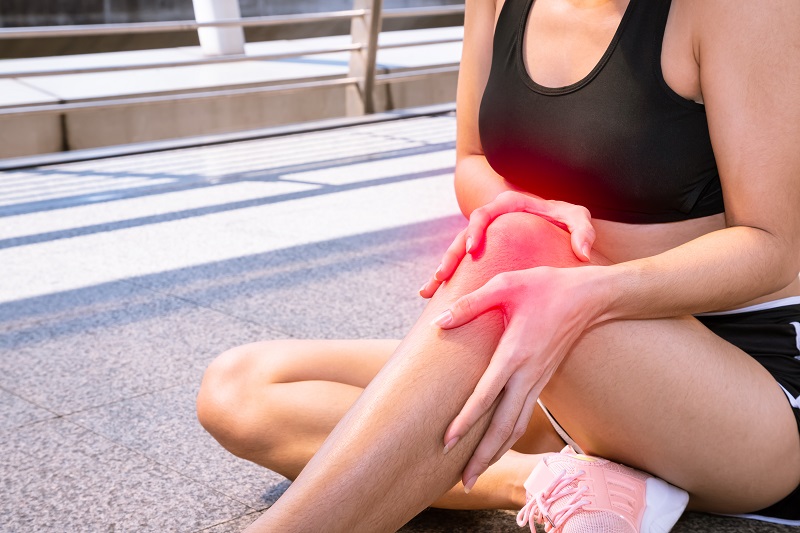Knee arthritis is one of the most prevalent joint conditions today, characterized by pain, swelling, stiffness, and reduced mobility. While it is commonly associated with aging, it is increasingly affecting younger adults, particularly due to lifestyle factors. Understanding the causes of knee arthritis and implementing appropriate treatment measures can significantly improve joint function, prevent complications, and enhance overall quality of life.
1. Common Causes of Knee Arthritis
1.1 Age-Related Degeneration
Among the leading causes of knee arthritis, natural wear and tear due to aging is the most common, especially in individuals over the age of 50. Over time, the cartilage that cushions the knee gradually wears down, leading to bone-on-bone friction, pain, and inflammation. Reduced joint fluid production and changes in bone structure also contribute to decreased flexibility and mobility.
Patients may notice persistent knee discomfort, particularly stiffness in the morning that improves with light movement.

Arthritis of the knee often affects people over 50.
1.2 Injury or Improper Movement
Traumatic injuries such as ligament tears, meniscus damage, dislocations, or sprains are also notable causes of knee arthritis. If left untreated, these injuries can result in chronic inflammation and accelerate joint degeneration. Additionally, repetitive stress from poor posture, improper exercise techniques, or lifting heavy loads incorrectly can overload the knee joint and contribute to arthritic changes.
1.3 Obesity and Excess Body Weight
Being overweight is a silent yet significant contributor to knee arthritis. The knees bear the full weight of the body during movement. For every extra kilogram of body weight, the pressure on the knees multiplies up to four times during activities such as walking or climbing stairs. Over time, this pressure wears down the cartilage, resulting in pain, swelling, and restricted mobility.

Obesity and injuries are common causes of knee arthritis.
1.4 Rheumatoid Arthritis
Rheumatoid arthritis (RA) is an autoimmune condition where the immune system mistakenly attacks the joint lining. Unlike degenerative arthritis, RA often affects both knees symmetrically and is accompanied by systemic symptoms such as low-grade fever, fatigue, and unintentional weight loss. RA is progressive and, if left untreated, can lead to joint deformity and loss of function.
1.5 Gout and Uric Acid Crystal Accumulation
While gout commonly affects the big toe, it can also involve the knees when uric acid crystals deposit in the joint. This can cause intense inflammation, redness, severe pain, and limited range of motion. Gout flares in the knees typically occur suddenly, often at night, and may severely disrupt sleep and daily functioning.
2. Symptoms and Diagnosis
2.1 Key Symptoms of Knee Arthritis
Common signs include persistent or intermittent knee pain, morning stiffness, mild swelling, and difficulty walking. Patients may also notice a grinding or popping sensation during movement. In advanced stages, joint deformity and loss of full knee extension or flexion can occur.
2.2 Diagnostic Methods
Accurate diagnosis is essential for effective treatment. Physicians typically rely on:
– Physical examination of the knee
– X-ray imaging to evaluate joint space and bone changes
– MRI for assessing cartilage, ligaments, and soft tissues
– Ultrasound and blood tests to identify autoimmune markers or elevated uric acid levels
3. Treatment Options for Knee Arthritis
3.1 Medication Management
Treatment often includes pain relievers (e.g., paracetamol, ibuprofen), non-steroidal anti-inflammatory drugs (NSAIDs), and corticosteroid injections for severe inflammation. In cases of autoimmune arthritis, disease-modifying drugs may be prescribed.
All medications should be taken under medical supervision to avoid side effects, particularly in elderly patients or those with chronic conditions.

Arthritis in knee can be managed with proper diagnosis and treatment.
3.2 Physical Therapy and Rehabilitation
Targeted physiotherapy improves joint mobility, reduces pain, and strengthens the muscles around the knee. Stretching, low-impact exercises, hot/cold therapy, and electrical stimulation can enhance recovery and circulation.
3.3 Surgical Intervention
When conservative treatment fails and joint damage is extensive, partial or total knee replacement may be considered. Surgery can restore movement and reduce long-term pain, though it requires a longer recovery period and comes with higher costs.
4. Prevention Strategies
4.1 Maintain a Healthy Weight
Controlling body weight reduces knee joint stress. A balanced diet rich in green vegetables, whole grains, omega-3 fatty acids, and lean proteins helps reduce inflammation naturally.
4.2 Practice Safe, Regular Exercise
Engage in low-impact activities like walking, swimming, or cycling to preserve joint flexibility. Avoid high-impact sports that place excessive strain on the knees. Always warm up properly and use protective gear if needed.
4.3 Seek Early Medical Attention
Prompt evaluation at the first sign of knee discomfort is crucial. Early treatment can delay or prevent progression and maintain daily function.
5. Expert Advice for Long-Term Management
Sustained lifestyle changes are essential in managing chronic joint conditions. Avoid prolonged sitting or standing, modify activities that stress the knees, and stay physically active with rest periods as needed. Follow your physician’s treatment plan, attend follow-ups, and avoid self-medicating.
Understanding the causes of knee arthritis empowers individuals to take proactive steps in preserving joint health. With early intervention and a holistic treatment approach, patients can live actively and comfortably, minimizing the risk of long-term complications.








